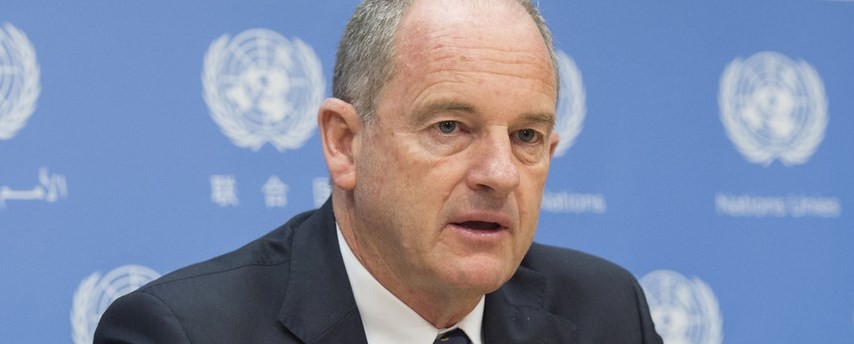Some progress has been made towards restoring peace in South Sudan as outlined in the peace deal, yet the implementation process is not happening fast enough, a senior UN official said.
In an exclusive interview with Radio Tamazuj on Thursday last week, David Shearer, head of the United Nations Mission in South Sudan (UNMISS) said it is important for the implementation of the peace deal to move faster with greater accountability for the country’s resources.
“I would like to see the peace agreement move faster, I would like to see greater accountability on where resources of South Sudan are being spent at the moment because I don’t believe it is benefiting the people as it should,” said Shearer. “There are a lot of things that have gone wrong, but we have moved a long way in the last 18 months from where we were.”
Shearer lauded President Salva Kiir and First Vice President Riek Machar for agreeing on the allocation of states, saying appointment of state governors will help feuding communities to reconcile.
“I think the governors can play a very fundamental role in being able to impose authority, not only at the level of states, but also at the level of the payams and at the county level as well. If the governors are given the authority that they require, they can have a very big impact on the level of violence,” he said.
The senior UN official said escalating intercommunal clashes in parts of South Sudan could threaten the peace agreement. Shearer expressed concern that the security situation in Jonglei is tense and could result in many people being killed.
He emphasized on the importance of long-term developmental plans in order to address the intercommunal violence in Jonglei.
Shearer said the United Nations is working to ensure there is a ceasefire between the communities of Jonglei, adding that they will continue protecting civilians and facilitating reconciliation between the rival communities of Jonglei.
Meanwhile Shearer said the UN peacekeepers would continue to provide security and protection to the internally displaced persons (IDPs) inside the Protection of Civilians (POC) sites, amid reports of insecurity often caused by fighting among different groups inside the camps in the country.
“We will continue to do our best, we will continue to have our police play their part, continue to liaise with the leadership at the POCs but at the end of the day, it is the leadership at the POCs and the leadership beyond that have to resolve these issues,” he stressed.
Shearer said UNMISS is not planning to push people out of the POCs, saying the majority of those sheltering inside the UN camps do not have means to rebuild their lives.




